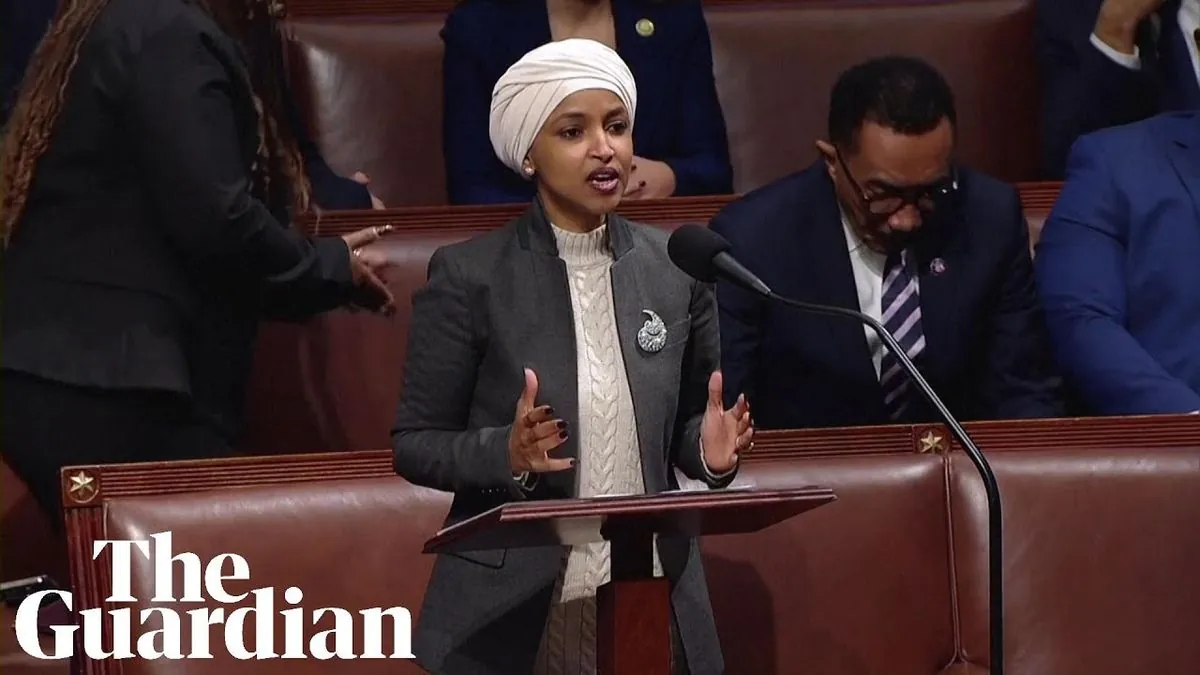House to Vote on Controversial Government Funding Plan Amid Shutdown Concerns
Speaker Johnson's funding proposal faces opposition from both parties as the government shutdown deadline looms. The plan, lacking sufficient Republican support, could lead to a setback in negotiations.

The U.S. House of Representatives is set to vote on Speaker Mike Johnson's government funding plan on 2024-09-18, despite lacking sufficient support from his own party. This development comes as the nation faces a potential government shutdown in less than two weeks, with current funding set to expire on 2024-09-30.
Johnson's proposal aims to extend federal funding at current levels for six months and includes a measure requiring proof of citizenship for national election voter registration. However, the plan has encountered opposition from both Republicans and Democrats, raising concerns about its viability.

The Speaker's strategy faces significant challenges:
- Insufficient Republican support
- Opposition from Democrats in both chambers
- A veto threat from President Biden
These obstacles highlight the complex nature of U.S. budget negotiations, a process that has led to 21 government shutdowns since 1976. The longest shutdown in U.S. history lasted 35 days in 2018-2019, demonstrating the potential severity of such impasses.
Johnson stated, "Congress has an immediate obligation to do two things: responsibly fund the federal government and ensure the security of our elections." However, it's important to note that noncitizen voting is already illegal in federal elections, and instances of voter fraud by noncitizens are extremely rare.
The current situation underscores the critical role of the U.S. Congress in managing the nation's finances. As one of its most important constitutional duties, the "power of the purse" gives Congress the authority to control federal spending. The U.S. federal budget for fiscal year 2024 is approximately $6.9 trillion, highlighting the enormous financial stakes involved in these negotiations.
Many lawmakers, including Democrats and some Senate Republicans, prefer a three-month funding extension. This approach would allow for more comprehensive spending discussions after the November 2024 elections. However, some far-right GOP members view the current funding debate as an opportunity to secure concessions on immigration policy.
The use of continuing resolutions (CRs) has become a common practice in U.S. budget politics, with over 100 instances since 1977. However, this approach has its critics. Rep. Cory Mills expressed concern about the fiscal responsibility of repeated CRs, while House Armed Services Committee Chairman Mike Rogers worried about the potential impact on defense spending during a time of global tension.
As the deadline approaches, the pressure for a bipartisan agreement intensifies. Senate Majority Leader Charles E. Schumer emphasized the need for cooperation, stating, "At this point in the process, the only way we can prevent a harmful government shutdown is by both sides working together to reach a bipartisan agreement."
The ongoing budget negotiations occur against the backdrop of a growing national debt, which exceeded $33 trillion in September 2023. This financial context adds urgency to the discussions and highlights the long-term fiscal challenges facing the nation.
As the House prepares for the vote, the outcome remains uncertain. The potential failure of Johnson's proposal could pave the way for a "clean" three-month funding bill, which may garner support from both parties. However, with the clock ticking and the specter of the third government shutdown in a decade looming, lawmakers face mounting pressure to find a solution that can bridge the political divide and keep the government operational.


































